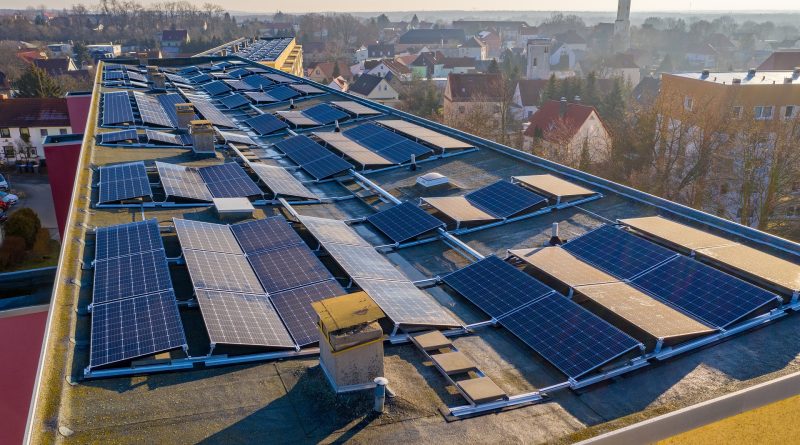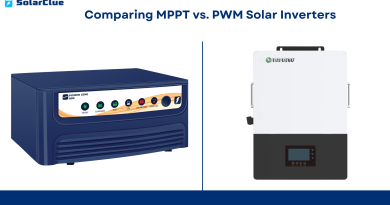Embrace Eco-Friendly Living: Install Solar Power
With the increasing threat of climate change and a growing desire for sustainable living, more and more homeowners are considering alternative energy solutions for their homes. Solar power is one such solution that has gained significant attention in recent years. By harnessing the abundant power of the sun, homeowners can reduce their reliance on fossil fuels and embrace a cleaner, greener future. In this blog, we will explore the benefits of installing a solar power system in your home and discuss how it can help you embrace an eco-friendly lifestyle.
The Advantages of Solar Power
Solar power offers numerous advantages for homeowners looking to reduce their environmental impact and save on energy costs. One of the primary benefits of solar power is its renewable nature. Unlike fossil fuels, which are finite resources and contribute to greenhouse gas emissions, solar power relies on the Sun’s energy, which is available in abundance and without any negative environmental consequences. By installing a solar power system, homeowners can reduce their reliance on non-renewable energy sources and contribute to a cleaner, more sustainable future.
Another advantage of solar power is the potential for long-term financial savings. While the initial installation costs may seem significant, solar power systems can significantly reduce homeowners’ electricity bills in the long run. In many cases, solar panels generate more electricity than a household consumes, allowing homeowners to sell excess power back to the grid or store it for later use. Additionally, some governments and local authorities offer financial incentives, such as tax credits or grants, to encourage homeowners to switch to solar energy, further offsetting the initial investment.
Reducing Your Carbon Footprint
By installing a solar power system in your home, you can greatly reduce your carbon footprint. Traditional electricity generation heavily relies on fossil fuels like coal, oil, and natural gas, all of which release greenhouse gases when burned. These gases, such as carbon dioxide, contribute to the greenhouse effect and global warming. Solar power systems, on the other hand, produce clean, renewable energy without any harmful emissions. By embracing solar energy, homeowners can actively participate in combating climate change and contribute to a more sustainable future for generations to come.
Energy Independence
One often overlooked advantage of solar power systems is the newfound energy independence they provide homeowners. By generating your electricity, you become less reliant on utility companies and vulnerable to fluctuations in energy prices. Instead, you can generate your electricity from the sun, which is a free and abundant resource. Furthermore, during power outages or blackouts, solar power systems equipped with battery storage can continue to provide electricity, ensuring a constant power supply when it is needed most. This empowers homeowners to take control of their energy usage and become self-sufficient in their power needs.
Installation Process and Maintenance
Installing a solar power system in your home typically involves several steps. First, an assessment of your roof’s suitability for solar panels is conducted, considering factors such as shade, orientation, and structural integrity. Then, a professional installation team will mount the solar panels on your roof, ensuring optimal exposure to the sun. Electrical components, such as inverters and meters, are then connected to convert and measure the electricity generated. Finally, the system is connected to your household’s electrical grid, and any excess electricity can be exported back to the grid.
The maintenance required for solar power systems is minimal. Regular cleaning of the panels to remove dirt, debris, or snow ensures maximum efficiency. Additionally, monitoring the system’s performance and checking for any malfunctions or issues is essential. In case of any problems, it’s recommended to contact a professional to diagnose and repair the system. Overall, solar power systems are designed to be durable and reliable, requiring little ongoing maintenance.
Conclusion
Embracing an eco-friendly home solution by installing a solar power system offers numerous benefits for homeowners. Not only does it reduce your reliance on non-renewable energy sources and lower your carbon footprint, but it also provides long-term financial savings and energy independence. The installation process is straightforward, and the maintenance required is minimal, making it a viable option for homeowners looking to make a positive impact on the environment while enjoying the convenience of renewable energy. By choosing to install a solar power system, you are taking a crucial step towards creating a greener, more sustainable future.
Frequently Asked Questions
Solar power systems reduce reliance on traditional energy sources, saving money and promoting environmental sustainability.
Solar panels convert sunlight into electricity through photovoltaic cells, which generate a direct current (DC) that is then converted into usable alternating current (AC).
Yes, solar power systems can be customized to fit various home sizes and energy needs, making them versatile for residential use.
Solar power reduces greenhouse gas emissions, air pollution, and reliance on finite fossil fuels, contributing to a cleaner and healthier environment.
Solar panels can last 25-30 years or more with minimal maintenance, mainly involving occasional cleaning and checks for optimal performance.
Yes, through solar battery storage systems, excess energy generated during sunny days can be stored and used during periods of low sunlight.
Many governments offer incentives such as tax credits, rebates, and net metering programs to encourage the adoption of solar energy.
Installation involves assessing your home, designing a customized system, obtaining permits, installing panels, and connecting the system to the electrical grid.
Yes, solar power systems are designed to seamlessly integrate with existing electrical systems, supplementing grid power when needed.
ROI varies but is generally positive, considering energy savings, potential income from selling excess power back to the grid, and the added home value.


